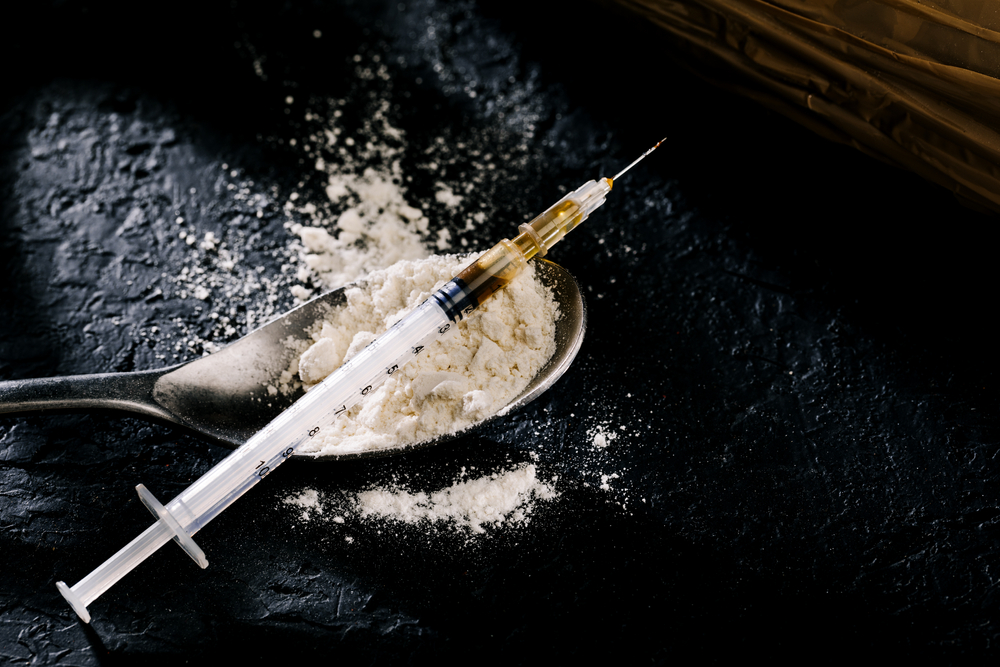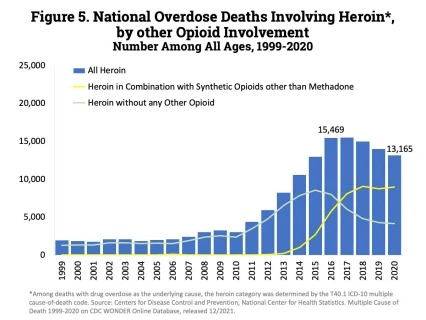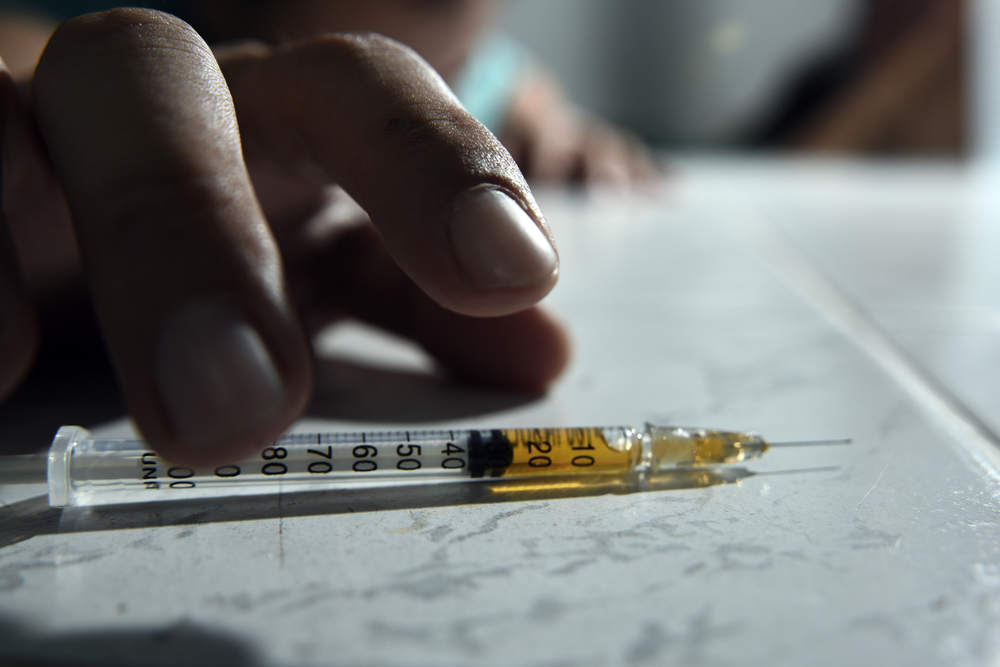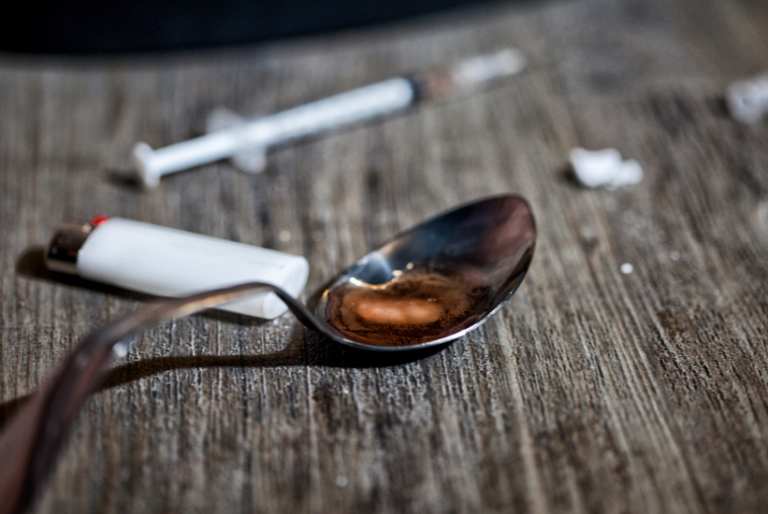Why is heroin so addictive? This is a question that has been asked time and time again. Heroin addiction has become a significant issue in the United States since 2017, and it doesn’t appear to be disappearing soon. In the United States, people are becoming addicted to heroin at a higher rate than ever before, and it is proving to be more dangerous than ever before.
Drug addiction is rarely immediate. People who use drugs must use them for a long time to produce brain changes that cause addictive behavior and compulsive use. However, with just one use of heroin, a user can become instantly hooked and develop an immediate addiction. While drug abuse issues are recognized in the United States, some people might not realize that heroin is a significant contributor.
To learn more about heroin including what makes it so addictive, keep reading.
What is Heroin?
Heroin, a strong opioid drug derived from morphine, is created from naturally occurring poppy plants in Asia, Mexico, or Colombia. The opioids bind to opioid receptors in the brain, producing a feeling of comfort, pleasure, and even pain relief. Heroin is offered as a white or brown powder blended with starch, powdered milk, or sugar. Heroin that is not blended with anything else is a white powder that tastes extremely bitter.

Heroin can also appear as a black sticky substance known as “black tar” which happens when the drug is made under impure processing techniques.
Heroin of this type is mostly dissolved and injected. Heroin in granules or small rocks-like bits is also an available form. Heroin can be injected, snorted, or smoked. After consuming heroin, a person experiences a rush of elation and alertness.
Although no safe level of heroin consumption is known, the substance’s impact is determined by how much a person weighs, their health, and whether or not they have previously ingested it.
Effects of Heroin Use
People who take heroin experience a rush of euphoria followed by an enhanced level of awareness. After heroin use, people usually feel intense pleasure, have slower heartbeats and breathing rates, and have reduced appetites for three to five hours. Heroin is considered an “ideal” drug to immediately handle physical or mental pain to “become comfortably numb” as a result of its euphoric high. Other side effects include:
- Dry mouth
- Dizziness
- Relaxation
- Pain relief
- Confusion
- Slurred speech
- Heaviness in extremities
- Lethargy
Heroin users rarely want more after their first experience as its effects inspire them to try it again. A dangerous habit of repeated heroin use may start as a result. Addiction is possible within a week if the drug is frequently used and the purity is high.
Dangers of Heroin Use
According to the Centers for Disease Control and Prevention, there were more than 13,000 heroin-related overdose deaths in the United States in 2020, resulting in a death rate of nearly 4 deaths per 100,000 people. Therefore, the number of heroin-related overdose deaths has officially doubled since 1999. The graph below shows this dramatic increase.

According to the 2019 National Survey on Drug Use and Health, around 10.1 million individuals aged 12 or older misused opioids in the previous year. Specifically, 9.7 million individuals misused prescription painkillers and 745,000 individuals used heroin.
Why is Heroin So Addictive?
There are many myths and misunderstandings surrounding the origin of heroin, its effect on the brain and body, who uses and abuses it, and why, as well as how addiction develops. It is harder and more costly to acquire prescription opioids than heroin.
Many people who become addicted to heroin because it is cheaper and easier to find on the streets are now dying from it because it is often mixed with fentanyl. Heroin is no longer pure, and when mixed with fentanyl it often leads to fatalities. Because of this, millions of deaths and overdoses occur annually.
The reasons why heroin is so addictive can be broken down into the following:
- It is cheaper and more accessible than prescription opioids
- The withdrawal symptoms are painful
- Heroin is highly potent
- The drug rewires brain chemistry
Heroin’s Effects on the Brain
As mentioned previously, one of the primary reasons why heroin is addictive is because of how it alters the brain’s chemistry. The brain chemistry is altered and altered when people snort or inject heroin, and it occurs more rapidly than most people realize.
Every time a substance like heroin is consumed, the brain and body need to adapt in order to ensure they receive the same ‘high.’ This creates dependency and tolerance, and quickly leads to addiction. Addicts are hooked to heroin because their brains are rewired to desire the drug, and they can’t stop because of this. A heroin addict must inject the drug in order to be able to function and go through everyday life.
The reward system in the brain is what motivates us to remember situations or things that make us feel good. Heroin changes the brain’s motivation and reward centers by altering the areas in the brain that are responsible for motivation and reward. This chain reaction is offset, and the reward region motivates the brain to repeat these enjoyable experiences. This is how addictive behaviors are created.
Even if someone uses heroin for the first time, the brain has been tricked and trained to enjoy its effects as a result of its prior ability to make one feel pleasure and elation. Because of this, individuals become hooked on heroin with just one use. The reward is granted, and the body’s tolerance and addiction progress with each dose, before it is unable to function without it.
All opioids or painkillers assist in reducing pain. Our brains keep us alive and allow us to think, feel, behave, move, and so on. All the various parts of the body work thanks to the brain. The reward center in our brain releases dopamine, a neurotransmitter.
These receptors in the brain and body bind to neurotransmitters to regulate discomfort, hormone production, and wellness. When we eat a favorite meal or have a good workout, opioid receptors are triggered, resulting in euphoria. Morphine triggers the same response when people consume heroin.

The immediate euphoria and pleasure produced by heroin is what makes it so dangerous and addictive. Despite the major societal, mental, and physical drawbacks, people turn to drugs in an attempt to numb or relieve their pain in any way possible, primarily because of addiction.
The brain is activated to a dangerous level by opiates as strong as heroin, which Rewires the brain’s circuits beyond those produced by the body itself. Once the euphoric feelings associated with heroin wear off, real problems emerge.
It is therefore difficult to rewire brain circuits once they have been damaged. When heroin-like opiates activate the brain excessively, they cause irreparable damage, resulting in problems after the euphoria has worn off. Since heroin rewires brain circuits, damage to those areas is difficult to repair once the euphoric high has worn off.
Heroin’s Effects on the Body
Using heroin harms your respiratory system and increases your chance of overdose. The central nervous system slows down your breathing and heart rates by sending messages to your nervous system. You might overdose on heroin and die if your breathing and heart rates are too slow. Heroin can also worsen asthma symptoms and cause other respiratory ailments.
In addition, opioids can harm your immune system by exposing you to infections from heroin injections. T and B immune cells are decreased or suppressed, as well as your body’s ability to produce new immune cells. As a result, you are less able to fight viruses, bacteria, and infections.
Abusers of heroin share needles with other users, which makes them vulnerable to blood-borne diseases such as HIV and hepatitis C. According to the CDC, 1 in 10 HIV cases is attributed to heroin injection.
The heart is not exempt from the many physical side effects of heroin use. Long-term heroin use can adversely affect the heart, resulting in heart disease. Heroin use is strongly associated with heart complications. Heroin might damage the heart’s lining and valves, increasing your risk of heart disease and pulmonary issues. In addition to heart disease, heroin use has serious health consequences, such as heart failure, arrhythmia, and pulmonary edema.
Heroin injection scars and scabs, known as track marks, are created when you inject heroin. Heroin scars and scabs may result from the repeated injection of the drug into the same vein, as well as from puncture wounds, abrasions, discolorations, and elevations.
Heroin injection scars may appear as puncture wounds, bruises, or scars and may be discolored or raised. Heroin injections most frequently occur on the elbow of the inner arm, but they may be administered anywhere.
Signs of Heroin Addiction
Many heroin users eventually become so dependent on the drug that they can no longer function normally without it. Heroin use is difficult to detect, and many users are adept at concealing it. While needle or ‘track’ marks are a clear indication of heroin abuse, new users rarely inject the drug. Some indicators of heroin addiction are:
- Sudden weight loss
- Pinpoint pupils
- Isolation
- Using in secrecy
- Track marks
- Withdrawal symptoms when not using
- Legal issues
- Poor personal hygiene
- Financial problems
- Intense cravings
- Neglecting responsibilities
- Excessive drowsiness
- Borrowing or stealing money
- Loss of interest in things once enjoyed
- Wanting to quit but being unable to

Heroin Withdrawal
The physical dependence that occurs as a result of heroin abuse is accompanied by physical and psychological dependency. Withdrawal symptoms, as well as a need for a lot more heroin to get high, are indicators of physical dependence.
Withdrawal symptoms for Heroin addiction are often accompanied by significant physical suffering and occur within two hours of the last dose, unlike less physically addictive drugs such as marijuana and cocaine. Psychological symptoms are also present in heroin withdrawal.
Withdrawal from Heroin can cause muscle aches, cold sweats, and depression, among other things. Because these symptoms usually disappear within a week of the last Heroin use, post-acute withdrawal symptoms (PAWS) may persist for months after treatment.
A professional drug rehab facility and medicine are often required to help individuals with heroin addiction in their recovery.
Heroin Addiction Treatment
A heroin use disorder is a complex condition that requires extensive care. Withdrawal symptoms can be reduced with medically supervised detoxification, which is the recommended first stage in treatment.
Once the patient has been physically detoxified, various effective methods are available to correct faulty brain function and behavior as a result of heroin use. For most individuals, a combination of interventions is the most successful method.
After detox has been completed, an individual may continue with either inpatient or outpatient treatment for a longer period. With inpatient or residential treatment, you would live in a facility and be supervised 24/7.
With partial hospitalization programs (PHPs) and intensive outpatient programs (IOPs), you would continue with treatment outside of treatment hours while living at home or in a sober living residence. Everyone has unique wants and needs in regard to treatment, so your treatment program should be tailored to your individual requirements.
Get Started at Asheville Detox
The use of heroin can cause life-threatening health issues if left untreated. Those who abuse heroin recreationally as well as those who are addicted to it are at an increased risk of overdose death. If you or a loved one wants to finally kick your heroin habit, Asheville Detox can help. With the help of individualized treatment plans and holistic care programs, you’ll be able to kick heroin for good.
To find out more about our services and procedures, contact Asheville Detox immediately. Call us today to speak with an addiction recovery specialist. It’s never too late to change your life for the better, and we’re here to assist you.







